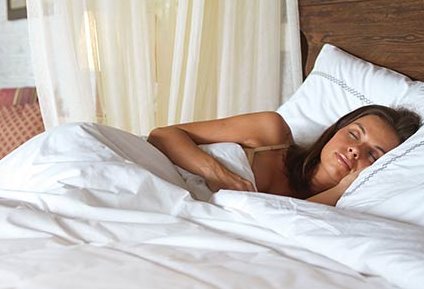Your shopping cart is empty!
×
SLEEPING WITH THE SEASONS By Ben Warren
Posted On: 2016-05-02 08:47:42

We know that eating with the seasons has numerous benefits.
Fruit & vegetables contain the greatest number of nutrients when they are allowed to ripen naturally.
For instance, avocados sold in winter have often been picked early then frozen or chilled to prevent them ripening too quickly.
Nutrients are lost this way, & they just don’t taste as good.
In my seminars I say to people you can taste nutrition.
Peaches from the Hawke’s Bay in January & February are juicy, ripe & you can taste the unique mix of enzymes, vitamins & minerals that make them so nutritious.
On the other hand, when you purchase them in a from the supermarket in Autumn & Winter- which you will be able to - they taste floury & bland.
But just like choosing produce, we need to adjust our sleep patterns throughout the year as well.
Here in the southern hemisphere daylight savings has passed & the days are becoming shorter.
Soon will come the point where daylight is gone by the time you leave work.
The changing weather conditions affect more than your routine outdoor activities—It actually disrupts some of your body’s natural processes, which is why you may want to burrow under your covers more often than not this time of year.
But a lot of us don’t. We push through with our exercise regimes, waking up at 5.30 am for that boot camp instead of getting that extra hour of sleep. This may be negatively impacting your health more than you realise.
It’s like robbing Peter to pay Paul.
There are several reasons for this. The first has to do with less light & our natural sleep hormone production in winter.
The lack of natural light in Winter suppresses the release of melatonin; the hormone that tells our body it’s time to get ready for sleep.
In summer when sunset is later, our melatonin signals come later.
Going to bed later is our bodies natural response to light cues.
Because nightfall is earlier in winter, & there is less light overall, we are genuinely more tired earlier in the day.
What are our first thoughts when we feel more tired though?
Do we take it as a cue that we need more rest?
Or, do we push through to fit in our exercise regime or social obligations?
Ask yourself this & give yourself permission to sleep if your natural instinct is to keep charging through your routine.
In our household I like to use sunset & sunrise as my guide.
I try to start my bedtime routine 2-3 hours after sunset.
In winter it’s also dark for longer in the morning.
If I’m going by nature’s clock, this means I can start my day slightly later.
In summer months my body can handle a little bit less sleep so I can go to bed at 10pm & wake earlier with natural light around 6am.
However, it’s not just melatonin that drives our increased need for sleep in winter.
In winter our immune systems are under pressure from colds & flu.
Even if you don’t get sick your body is working harder to protect you.
We can’t underestimate the importance of good quality sleep.
It’s a vital part of health.
Undersleeping has been linked to insulin resistance (pre-diabetes) weight gain, adrenal fatigue & chronic inflammation.
Our bodies need time to unwind & repair the damages of the day.
Establish a bedtime routine where you go to bed before 10pm each night.
In the depth of winter you can bring this bedtime forward.
Switch off technology at least an hour before going to bed to help your mind unwind.
If you struggle with sleep, test to see if you have a zinc deficiency.
Zinc is a key nutrient that helps with sleep.
You could also try meditation, chamomile tea, putting your legs up the wall for ten minutes or gentle stretching.
Comments
No Comments Found!



